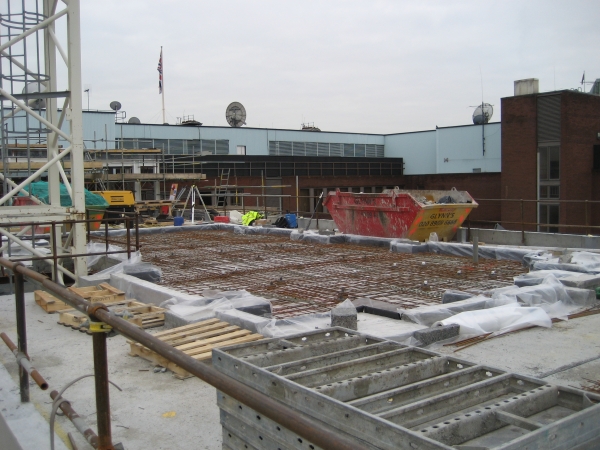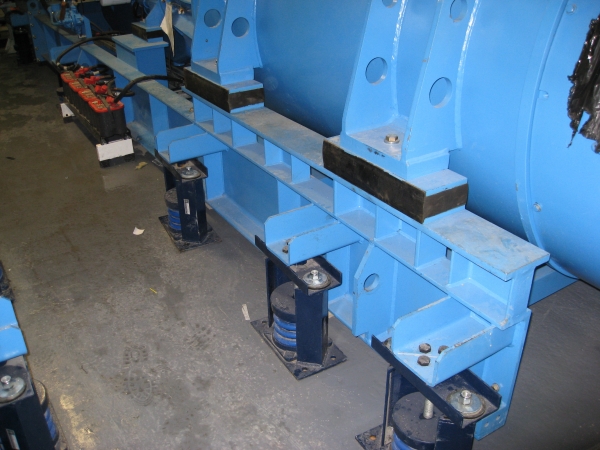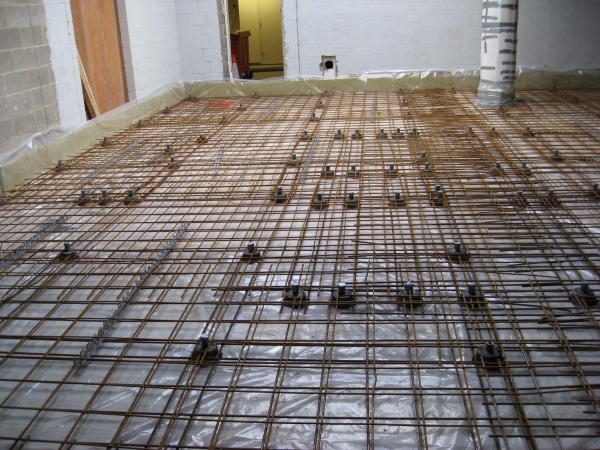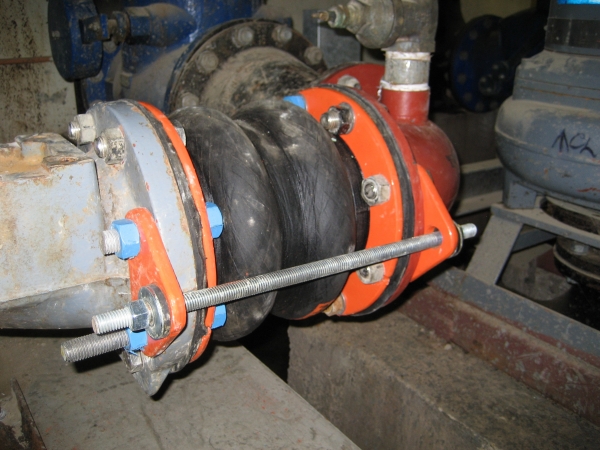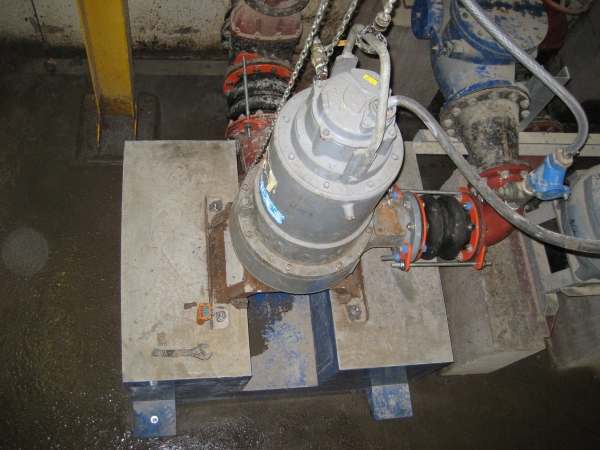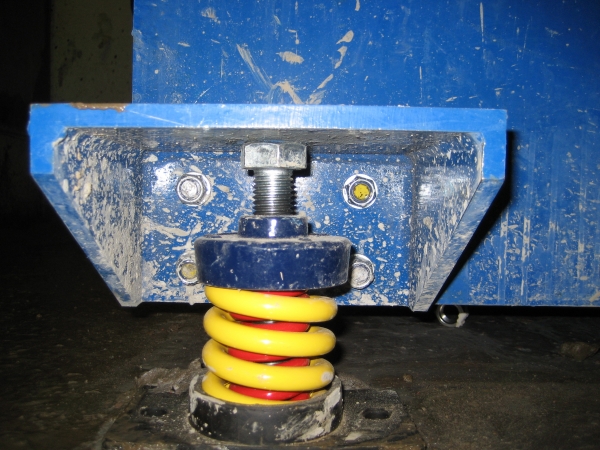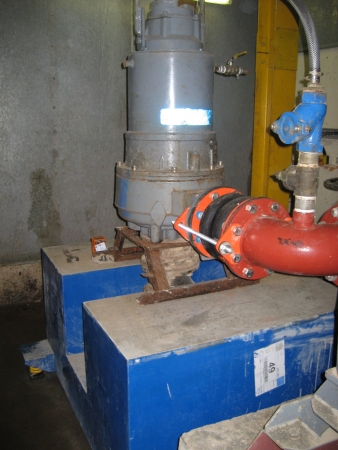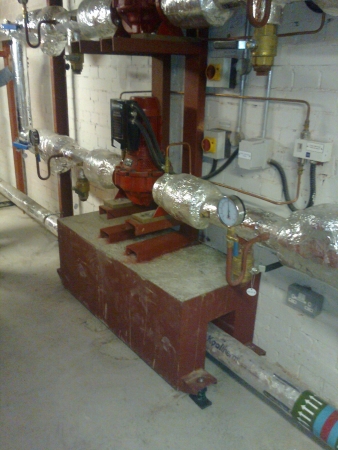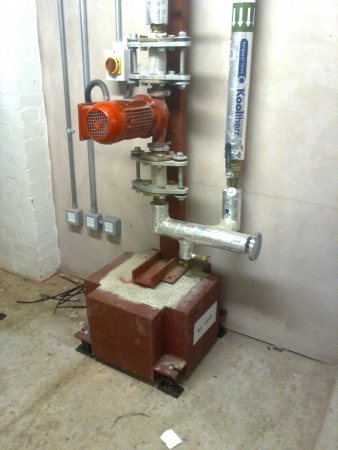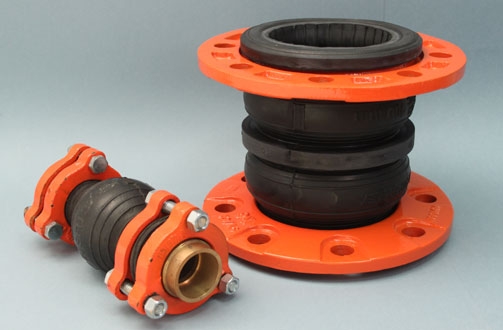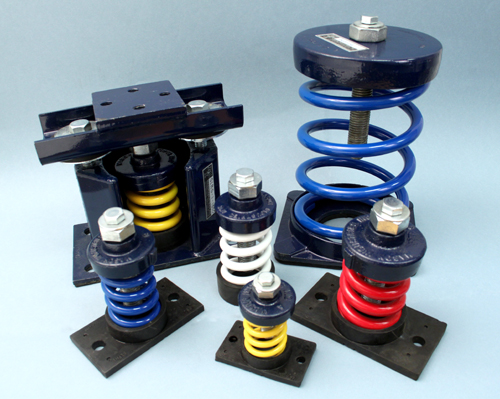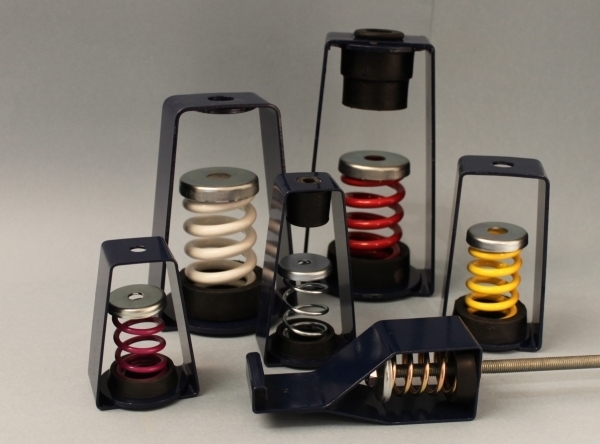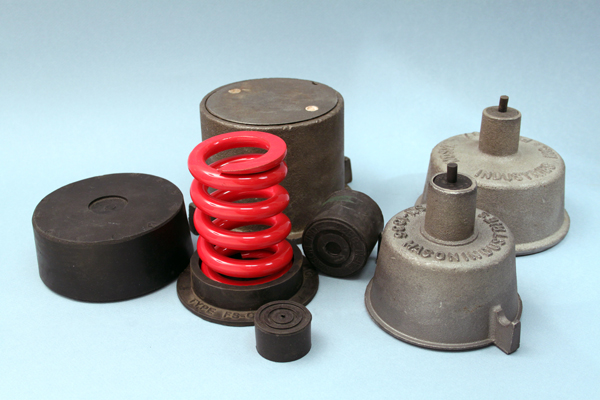
Plant Rooms
Plant rooms can be located anywhere in a building with the possibility of causing disturbance to sensitive areas such as bedrooms, offices, boardrooms, operating theatres, or penthouse suites.
A typical plant room may include the machinery for HVAC (Heating, Ventilation, Air Conditioning Systems), back up generators, pumps and potentially other vibration producing equipment too! These heavy-duty machines, by their very nature, produce high levels of noise and vibration.
Vibration Isolation in Plant Rooms
This can lead to problems when this noise leaks into surrounding rooms. Not only will it affect the acoustic comfort of staff working in those rooms (reducing efficiency and causing stress) but it can even damage the building structure! It is for these reasons that it is crucial to install some form of vibration isolation in plant rooms. Mason Industries has developed the very best equipment available for acoustically isolating plant room machinery.
The key to effectively isolating a plant room is to create acoustic barriers between each piece of vibration producing equipment and the main building structure. We would normally use a combination of inertia bases, floating floors, flexible pipe connectors and acoustic hangers. In this manner the vibration causing equipment is isolated from the main building structure, an air gap is created and acoustic soundproofing has been achieved.
Inertia Bases, Floating Floors, Isolation Bearings
To start with we need to isolate the equipment from the floor. The usual procedure for reducing the airborne & structure borne noise and vibration levels is for the plant to be installed on inertia bases or floating floors. Or for really heavy-duty plant we have isolation bearings. Occasionally a piece of machinery may be suspended from above using several acoustic hangers. The idea behind using these methods is two fold, firstly an air gap is created and secondly the rubber or spring element will �soak� up the vibration.
Whether you use LDS rubber (prev neoprene) or a spring element will depend upon the frequency of sound that your plant is producing. For more information on each of these methods and product types, please scroll down the page and click on the appropriate section. Or just contact our acoustic engineers.
Pipes Isolation
Any piping that attaches to vibrating machines will also need to be acoustically isolated, allowing for movement and stress. For this we recommend our flexible pipe connectors and our acoustic hangers. By using this combination of products you ensure that the plant rooms vibration & noise is unable to pass through to the main structure as it is absorbed by the rubber and spring elements of our products.
We have a large range of flexible pipe connectors; ranging from our Kevlar reinforced rubber Safe Flex and Super Flex, to our braided metal, stainless steel and copper pipe connectors. What is used for your plant room equipment will depend upon several variables, and is best discussed with our engineers.
To suspend this piping you will need to use resilient hangers. We have a large range of hangers to suit load and frequency. Typically either LDS rubber or spring elements or a combination of both are used, selected to meet the project specifications. For more information on all of these products please scroll down to the bottom of the page and click on the relevant section, or contact our helpful engineers.
Plant Rooms Conclusion
At Mason UK we understand that each and every job is different, so our products and staff are prepared to cope with the variety of acoustic problems you may have. We can adjust and alter our existing products to be able to manage most issues and they are renown throughout the industry for being the toughest and best available. All our designs are created for your unique needs and we have even created bespoke products, for a particular job, in the past. So whatever your problem, rest assured that Mason UK�s acoustic engineers will find a solution. Please contact us using the information in the blue bar to your left, or by sending us a quick email via our �Contact� page.
Typical Products Used
Rubber Expansion Joints
Information on flex development View Datasheet
View Datasheet |
Spring Mounts
Spring Mounted Inertia Bases
Spring Hangers
Concrete Floating Floors
Spring Floating Floors PDF View Datasheet
View Datasheet Rubber Floating Floors PDF View Datasheet
View Datasheet |






